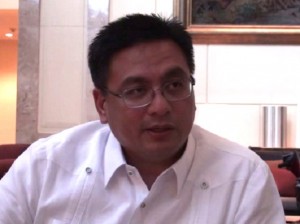With shortfall looming, Biazon bats for P300B in revenue
MANILA, Philippines—The Bureau of Customs, the government’s second-largest revenue-generating agency, incurred collection deficits of more than P186.5 billion between 2009 and 2012, according to a BOC report.
The bureau’s target shortfalls or “deviations” totaled P52.9 billion in 2009, P21.4 billion in 2010, P54.8 billion in 2011 and P57.23 billion in 2012, said the report, a copy of which was furnished the Inquirer.
In the first nine months of 2013, the Department of Finance-attached agency collected P224.46 billion, which is still a long way from its target this year of P340 billion.
A slowdown in imports, the acknowledged “culture of corruption” at the bureau, and growing utilization of free trade agreements are challenges to customs collections.
But Customs Commissioner Ruffy Biazon believes bureau personnel “should still be excited.”
Article continues after this advertisement“We’re in the last quarter of the year, the final push for us to reach our goal of collecting the right revenues for the government. Let us look forward to reaching the P300-billion mark this year,” he said.
Article continues after this advertisementThe former Muntinlupa City legislator said they were “close to P230 billion in collections. With a little more push, we’ll reach P300 billion.”
“Like a marathon where runners have kilometer marks for how far they have gone, we also have our internal motivational milestone mark of P300 billion,” he said.
The BOC logged P25.57 billion in collections in September, up 10 percent year-on-year.
Biazon did not reveal the BOC revenue target for September but he explained that the bureau “faced a blip in September collections because of the changes that we implemented. But we hope to make up for lost ground this month.”
“With October coming in, hopefully we’ll be able to put forward and reach that goal that we have, to reach P300 billion by yearend. That will be the first time the bureau will collect such a big amount. With the positive performance that we have, we’re encouraged that we can make it,” he said.
In July, Biazon said the bureau would most likely miss its 2013 collection target, citing sluggish international trade, globalization and trade liberalization, among other factors.
“Considering the slowdown in imports, we are not positive on meeting the (P340-billion) target,” he had told reporters.
Aside from anemic imports, the BOC head acknowledged that the continuing culture of corruption in the agency and among private sector firms doing business with the bureau were to blame for its discouraging performance.
For next year, a factor that needs consideration is the growing utilization of free-trade agreements, which are estimated to cost at least P60 billion.
The Philippines is part of several FTAs, including those with the Association of Southeast Asian Nations, China, Japan, South Korea, Australia and New Zealand, among others.
Biazon explained that the 2014 P408-billion target for the BOC did not factor in the government’s foregone revenues due to FTAs.
“The target is based on the assumption of trade volume that would come in… they computed our target based on the entire volume of trade without discounting FTAs, which would result in collection shortfalls. How can we collect something out of nothing?”
